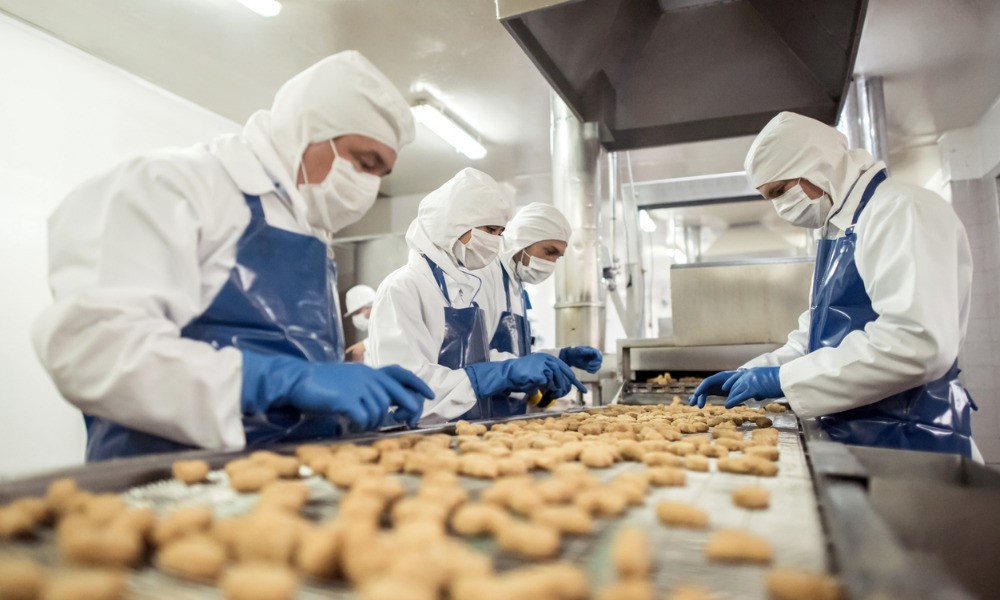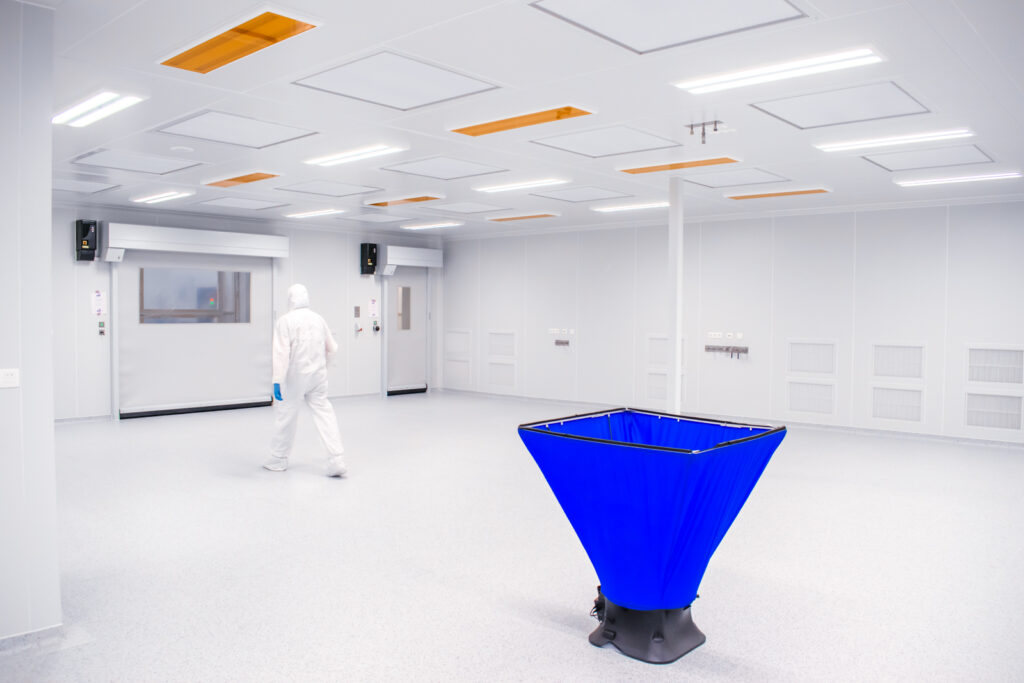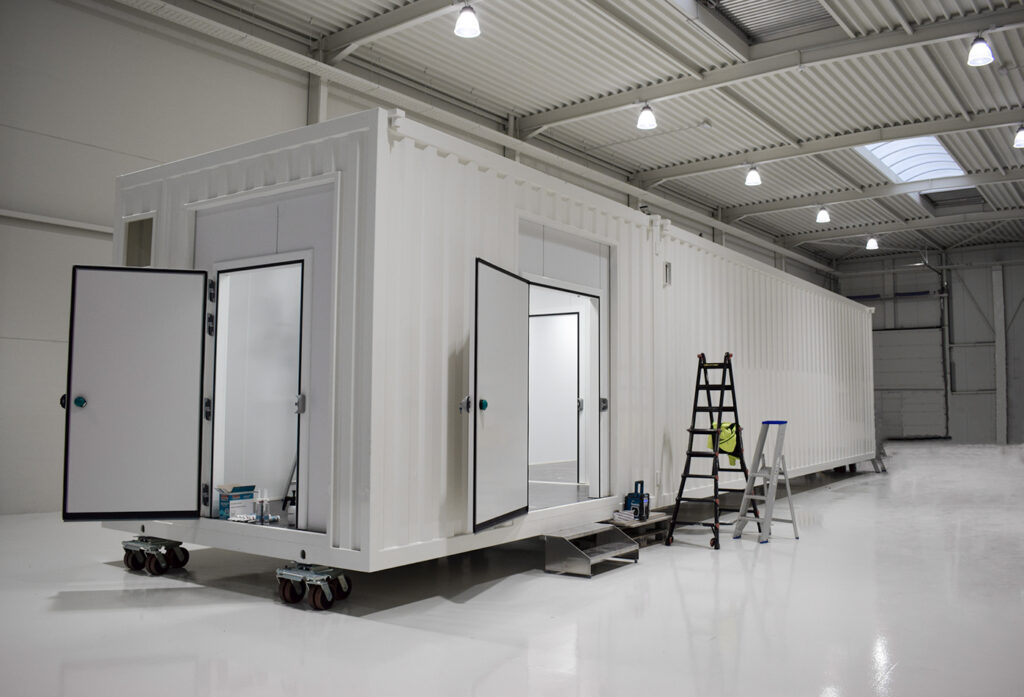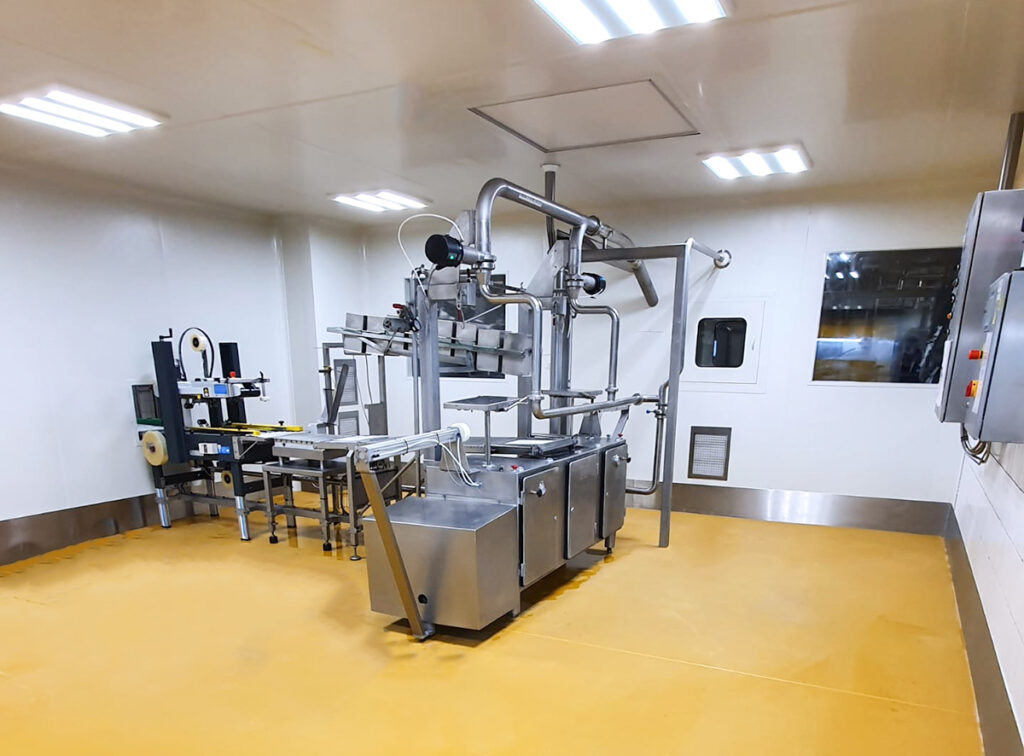The role of pre-engineered cleanrooms within the food processing industry has emerged as products meet stringent standards and regulations. These facilities play a crucial role in mitigating contamination risks, ensuring product integrity, and upholding the highest levels of hygiene throughout the food processing journey.



Cleanrooms play a critical role in maintaining food safety and quality within the food processing industry. They provide controlled environments where various food products are manufactured, processed, packaged, and stored under stringent conditions to prevent contamination, ensure product integrity, and comply with regulatory standards.
Contamination Control
Cleanrooms are designed to minimize the presence of contaminants such as dust, microbes, allergens, and foreign particles that can compromise the quality and safety of food products. Stringent air filtration, proper ventilation, and controlled airflow prevent the introduction of contaminants into the processing areas.
Microbial Safety
Controlling microbial growth is crucial to prevent foodborne illnesses. Cleanrooms help minimize the presence of harmful microorganisms, such as bacteria, viruses, and fungi, that can proliferate and lead to foodborne diseases if not properly managed.
Product Quality
Cleanrooms maintain consistent and controlled environments, reducing the likelihood of variations in product quality. This is especially important for sensitive food products that can be negatively affected by changes in temperature, humidity, and other environmental factors.
Worker Hygiene and Safety
Cleanrooms provide a controlled environment not only for products but also for workers. Proper attire, hygiene practices, and training are enforced in cleanroom environments to prevent any unintentional introduction of contaminants.
Food processing industries are subject to strict regulations and standards imposed by regulatory bodies. Cleanrooms help companies comply with these regulations by providing controlled environments that meet the required hygiene and safety standards.
Continuous monitoring of environmental conditions, such as temperature, humidity, particle counts, and pressure differentials, is essential. CleanConnect, our data logging and reporting systems ensures 100% traceability and compliance.
The role of pre-engineered cleanrooms within the food processing industry has emerged as products meet stringent standards and regulations. These facilities play a crucial role in mitigating contamination risks, ensuring product integrity, and upholding the highest levels of hygiene throughout the food processing journey.



Cleanrooms play a critical role in maintaining food safety and quality within the food processing industry. They provide controlled environments where various food products are manufactured, processed, packaged, and stored under stringent conditions to prevent contamination, ensure product integrity, and comply with regulatory standards.
Contamination Control
Cleanrooms are designed to minimize the presence of contaminants such as dust, microbes, allergens, and foreign particles that can compromise the quality and safety of food products. Stringent air filtration, proper ventilation, and controlled airflow prevent the introduction of contaminants into the processing areas.
Microbial Safety
Controlling microbial growth is crucial to prevent foodborne illnesses. Cleanrooms help minimize the presence of harmful microorganisms, such as bacteria, viruses, and fungi, that can proliferate and lead to foodborne diseases if not properly managed.
Product Quality
Cleanrooms maintain consistent and controlled environments, reducing the likelihood of variations in product quality. This is especially important for sensitive food products that can be negatively affected by changes in temperature, humidity, and other environmental factors.
Worker Hygiene and Safety
Cleanrooms provide a controlled environment not only for products but also for workers. Proper attire, hygiene practices, and training are enforced in cleanroom environments to prevent any unintentional introduction of contaminants.
Food processing industries are subject to strict regulations and standards imposed by regulatory bodies. Cleanrooms help companies comply with these regulations by providing controlled environments that meet the required hygiene and safety standards.
Continuous monitoring of environmental conditions, such as temperature, humidity, particle counts, and pressure differentials, is essential. CleanConnect, our data logging and reporting systems ensures 100% traceability and compliance.
Legolisation means standardisation. Standardisation causes a shift in production. Work is carried out in conditioned spaces such as factory halls. our cleanrooms are manufactured partly or entirely off-site, which means huge savings on transport costs and reduction of inconvenience on-site